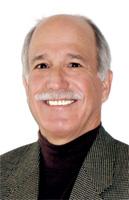If working wider interests you, read IBM’s 2009 Annual Report. What you’ll see is a veritable poster child for how a large company teaches itself how to think and work wider. Even better, what they’ve done applies to any size company. Let’s ground our discussion in results. Started just two years ago, their Growth Markets Read more
Working Wider
Rising from the ashes of communism has emerged a new form of competition that is as fast as it is formidable. I’m speaking of the “autocratic economies,” the most important being China with Viet Nam, South Korea, and Singapore as other examples. To a large degree, these countries embrace economic democracy while keeping significant political Read more
This past Monday, forty former board members and spouses of TheatreWorks, a Silicon Valley repertory theatre, gathered in our living room to celebrate the company’s fortieth anniversary and get an inside look into future plans. Since then, we have received far more thank you calls for hosting this annual event than I’d expect. This combined Read more
Most leadership books don’t address in detail how to lead across boundaries because that used to be the job of a few top executives. Today, middle managers and individual contributors regularly find themselves in leadership roles that cross groups, companies and ecosystems. This is what I call working wider. Working wider means that formal power Read more
Today, Washington D.C. stands as the antithesis of working wider. Critical issues including the financial crisis, global warming and health care are batted back and forth like a baseline rally on the championship court at Wimbledon. After being elected on a platform aspiring to rise above partisanship, President Obama has had little success bridging boundaries Read more
I often end diagnostic interviews with leaders asking: “What do you worry about on the drive home?” Curiously, one answer pops up more than any other: “Something I don’t see coming.” Is being blindsided part of the human condition? As social creatures, we get most of our opinions from those we already know. The Palin-Tea Read more
The default context for business leadership is the firm. This was appropriate when stand-alone manufacturing companies in mature economies dominated business. Today’s economy creates a radically different context for leaders and thus requires a new model. Credible competition now comes from every continent, particularly developing countries, as innovation and technology fuel service as well as Read more
Starting with web sites, then blogs and now social networks, the Internet provides a virtual and expansive version of the old public square. Web sites replace the colonial homes and stores that surround it. If Thomas Paine were alive today, “Common Sense,” would be posted on a blog rather than the square’s bulletin board. Social Read more
If our corporate control structures were uncooked spaghetti, dropping them into the wider environment softens them like boiling water. Working wider, requires us to challenge the central premise of corporate hierarchy: control. Our mental reflexes are so tuned to hierarchical control that imagining a world without it is difficult. Corporations and Congress are quick to Read more
Wider Major Studies are Making More Movies for Non-U.S. Audiences Time Warner CEO Jeff Bewkes is doing production deals abroad to boost revenues. One of Jeffrey Bewkes’ favorite movies these days is Two Ear Chicken, a low-budget German tale about a philandering tabloid journalist. No, the Time Warner (TWX) CEO hasn’t become a connoisseur of obscure Read more
As work moves from deep inside organizations to their edges and beyond, executives are called upon to establish a leadership presence that reaches out into the ecosystem. This requires a different set of skills as the ecosystem operates by rules far afield from those inside the corporation. Familiar structures such as internal objectives, roles, company Read more

 I'm Christopher Meyer - author of Fast Cycle Time, Relentless Growth and several Harvard Business Review articles.
I'm Christopher Meyer - author of Fast Cycle Time, Relentless Growth and several Harvard Business Review articles. 